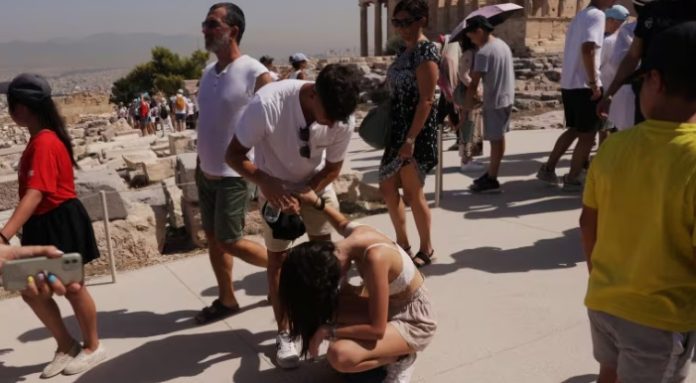Greek authorities have decided to close the Acropolis, one of Greece’s most famous landmarks, to tourists during the hottest part of the day on Wednesday, when the heat wave will hit the capital, CNN reports.
The popular tourist site, which attracts visitors from around the world, will be closed to the public from 12 to 5 p.m. local time, a spokesman for Athens’ Ephorate of Antiquities told CNN, as temperatures are expected to exceed 40 degrees Celsius (104 degrees Fahrenheit) on Wednesday.
Built on a steep, rocky hill, the UNESCO-listed site is particularly vulnerable to the heat, so queues of tourists waiting to enter and exit the landmark offer little protection from the beating sun.
In July last year, the site was closed from 12 to 5 p.m. as temperatures soared above 100 degrees Fahrenheit to protect workers and visitors. Shelters were organised and police and emergency services were called in to help tourists stranded by the heat.
According to Greece’s National Meteorological Service, which has issued an orange heat warning – the second most serious level – for the region will last until Thursday.
The high temperatures have raised fears that parts of Europe are in for another very hot summer, increasing the risk of a devastating wildfire season and threatening human health. Heatwaves are one of the deadliest natural disasters. In 2022, more than 61,000 people died in Europe during a record summer heatwave.
A combination of man-made climate change and the arrival of the natural climate phenomenon El Niño, which has a global warming effect, helped push temperatures last summer to record levels in parts of Europe, the fastest-growing continent on the planet. But even as El Niño weakens, scientists are clear that the long-term trend of global warming means heat waves will become more frequent and more intense.
